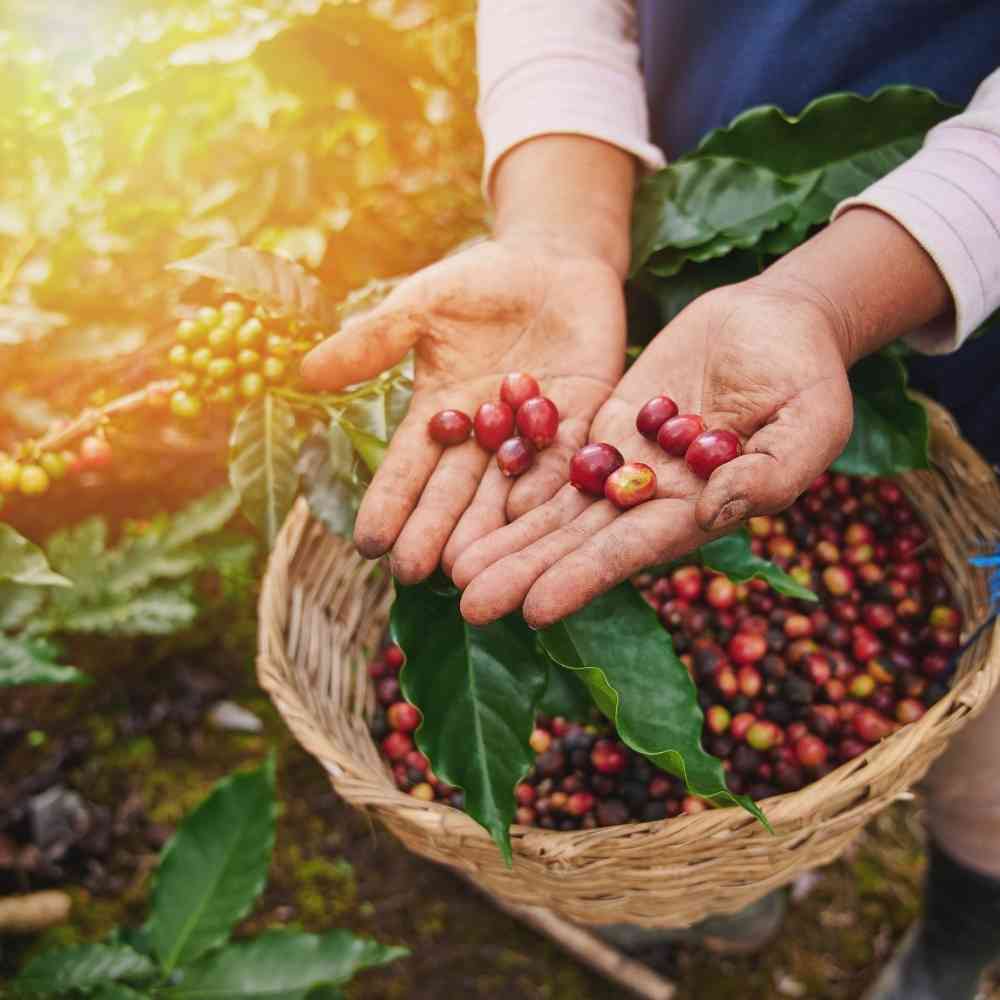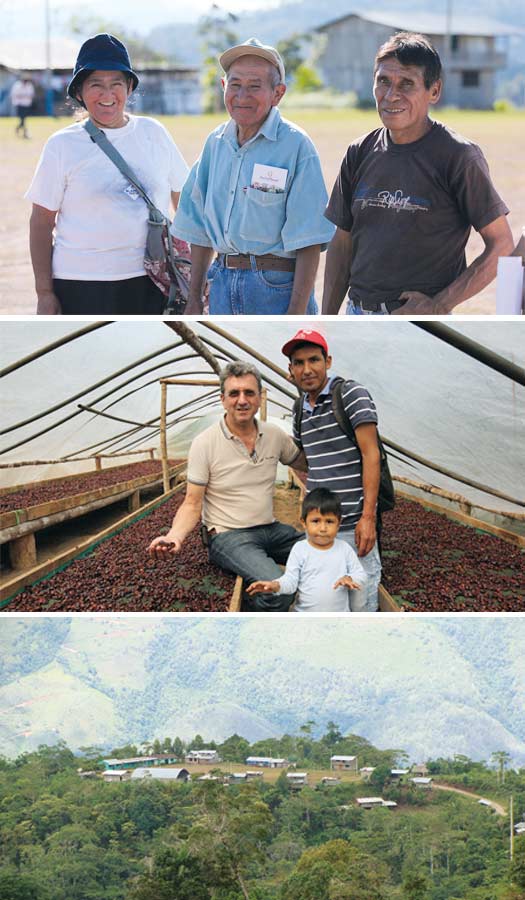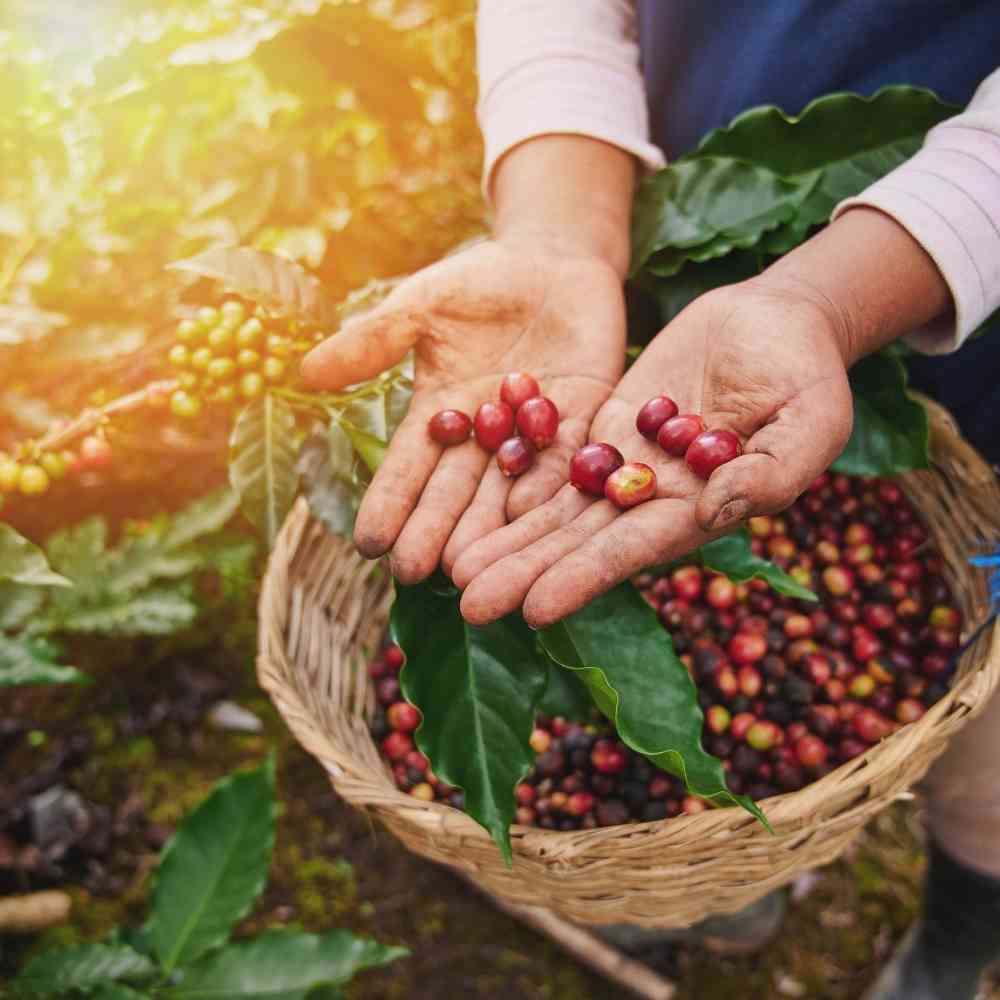
Peru Coffee Pacha Mama
PERU PACHA MAMA
Since 2019 we have been working with Munich-based Knauer & Knauer GmbH.
Pacha Mama coffee is coffee enjoyment directly from the plantation in Peru
Organically certified, directly traded and climate neutral.
click here for Peru Pacha Mama
3 good reasons to choose this coffee. And the most important reason: it tastes really good!
Michael Scherff
Cultivation, fertilization, harvesting, processing and quality are supported and controlled on site by Michael Scherff, a German manager who came to Lima through his Peruvian wife Mari del Carmen and is dedicated to coffee cultivation.
He supports and challenges the cafetaleros in the cooperative. Only the beans that meet the highest quality standards find their way to Germany.
Walter Knauer
Import and distribution are in the hands of his partner Walter Knauer and his wife Margot (Knauer&Knauer GmbH). The partners know each other from their work together in Munich. Walter Knauer has become an expert on the scene through his contact with the roasters and training seminars (e.g. with Prof. Edelbauer in Vienna).
The couple is particularly committed to social commitment to coffee farmers.
The Cafetaleros in Miguel Grau
About 50 coffee farmers now form the cooperative
CACI SATINAKI .
In 1969, as part of the land reform, the virgin forest in the area around Miguel Grau was given to farmers. It was cleared with axes and machetes and the land was made arable.
The first cooperative, “La Florida,” was founded, the village square was built by Miguel Grau. The first school was built, and the first cemetery was created.
From 1990 to 1994, the "Shining Path" ruled the country. This communist guerrilla organization also threatened the finca owners, and a large number of residents had to flee in 1992. When the danger was over, the people found their village devastated. It took over two years to set up the cooperative, and by 2010 it had grown to 50 cafetaleros.
Excellent coffee grows in the remote region of Canchamayo, but the people still lead a very modest life. The coffee farmers controlled the cultivation, but had coffee from different altitudes with many varieties and qualities both from the harvest and from the processing.
Due to overproduction, a collapse in prices on the coffee market and, most recently, a disease, coffee rust, which affected up to 30% of coffee plants, a large number of coffee farmers were open to the new perspectives we opened up for them.

Michael Scherff, the manager of our association in Peru, gave an interview for “Green Cup Coffee” and talked about what makes the coffee so unique and the people behind PachaMama.
FAIR PRICE AND SOCIAL RESPONSIBILITY
We pay each Cafetalero directly and according to their performance – so they have more to live on
Fair price through “Direct Trade”
The price we pay to coffee farmers for quality coffee is far above the world market price – and also above the “fair trade” price – because we have no middlemen.
Fair distribution: The farmers' higher income through direct trade, based on the quantity and quality of coffee delivered, is paid out to each farmer personally, without going through a cooperative manager (nothing can be diverted into "one's own pocket"). As a "bonus", we also finance social and ecological projects in the village through donations.
transparency
Every contract that is concluded with the farmers can be precisely tracked. All projects we support for education, health and nature conservation in the region are precisely documented.
For us, transparency also means that our trading partners are invited to come and see our association for themselves and get to know our Cafetaleros.
We pay more than the Fair Trade price which is $1.40/Libra (=454gr). Depending on the quality, that is between $1.25 and $1.38 MORE than Fairtrade (per Libra).
For the cafetaleros, this is 30% to 40% more than before.
We want to lead our Cafetaleros into the future, and price is important but not the only deciding factor.
In the past, people also sent money to developing countries and found that it was not THE solution.
We want to set the course for the future .
This includes high quality and accompanying measures such as: training, coaching, control, financing, funding projects (as described in the flyer)
If Michael and I stop doing this, then the farmers should be able to stand on their own two feet.
Our goal is to secure the future of the Cafetaleros and that is exactly what sustainability means to us.



